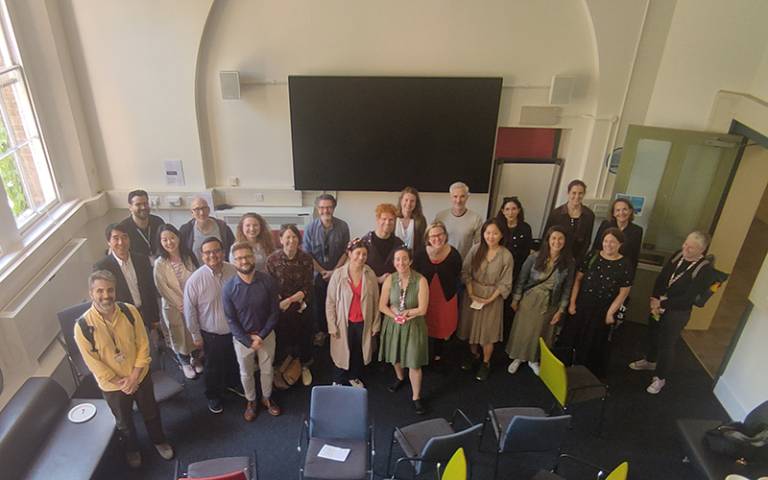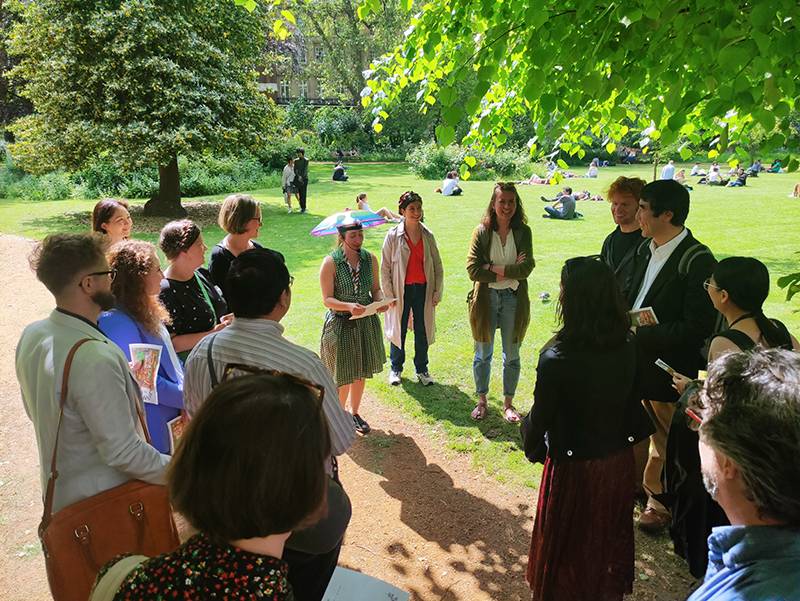Aura of Objects workshop highlights sensory experience of collections
5 July 2023
On 24 May, UCL hosted the inaugural Aura of Objects workshop series with funding from the UCL Cities Partnership Programme. Stacy Hackner describes how the workshops highlight how sensory experiences can be integrated into curated collections for research and learning.

As research culture has developed since the Enlightenment, our focus on visual information has far outpaced that of the other senses. The life of the mind involves reading, observing, and developing a clinical gaze that separates us from our research subjects, creating a sense of distance that makes us feel like strictly objective scientists in search of visual universal truths. This has become the modus operandi of Western science: the further you can distance yourself, the more accurate the science. Despite epistemological changes indicating that much research is, in fact, subjective, our culture remains primarily visual. Through this project, we’ve brought together workers who take a step back and learn how to incorporate the other senses into their research, often recognising the subjectivity, the emotion, and the scents and sounds and feel and taste of things.
The participants all enjoyed the object handling session. Even though some were familiar with the objects in the Object-Based Learning Lab, we presented them in a different light – in fact, without any light, as the objects were placed in black boxes and could only be handled, not seen. This was to think more about texture, weight, shape, all with the absence of visual clues. The drawings made of the unseen objects were a mix of quite accurate and quite funny. Our minds try to make sense of unseen things by relating them to known objects: when presented with complete unknowns, like the anesthetic mask from the medical collection, it got confusing! We also explored a variety of new objects – singing bowls and puzzle boxes, which have an interactive element.
Our three keynote speakers presented their fascinating research. Isabelle Chazot of L’Osmotheque brought fragrance papers of historic perfumes, including one from ancient Persia and Napoleon’s personal scent. Mariana Lopez presented an interactive research project of the sounds of historic York streets, and a framework for understanding soundscapes as evocation, recreation, and artistic reflection. Michael Banissy presented his research on how touch can affect our behaviour, including increased tips to waiters who touch patrons, and shared that humans tend to gently stroke at the same speed (about three strokes per second).

Our lunch included four cheeses each with a different texture and flavour profile, and a coffee tasting/smelling experience. We then took to the courtyard for a sensory walk, using techniques drawn from object-based learning, meditation, and archaeological work, to increase sensory awareness of the built environment. This ended with a tasting session and a chili pepper meditation, for those brave enough.
Discussions throughout the day were extremely thought-provoking and fruitful: when we break out of our sight-focused research, the other senses can shine through. Thanks to funding from the UCL Cities Partnership Programme, we were able to host international visitors who work with the senses and intangible heritage. We hope the UCL Cities Partnership Programme can keep these promising research collaborations going, and we’ll all be able to hear, touch, and smell each other soon!
 Close
Close

